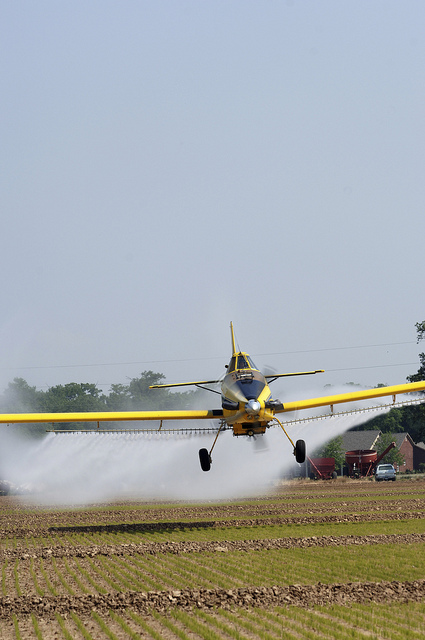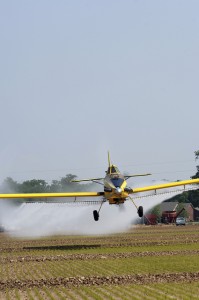
 You know pesticides are in our food supply, and you know they’re not good for our health. But even I was surprised when I heard about this Canadian study. Results showed that pesticides seriously increase your risk of breast cancer.
You know pesticides are in our food supply, and you know they’re not good for our health. But even I was surprised when I heard about this Canadian study. Results showed that pesticides seriously increase your risk of breast cancer.
Study Details
Granted, most of us aren’t exposed to the levels of pesticides that these study participants were. Researchers from the University of Sterling in Scotland studied over 1,000 Canadian women, half of whom had already been diagnosed with breast cancer. They found that those women who had the disease were nearly three times as likely to have worked on a farm, especially when they were teenagers.
The authors of the study speculated that toxic pesticides and other farm chemicals could be responsible for initiating changes in women’s breasts that would eventually lead to cancer. Developing breast tissue is particularly vulnerable to toxic exposure.
Cancer Related to Your Career?
Andrew Watterson, one of the study researchers, added that roughly four percent of all cancers are related to a woman’s occupation. He found that the risk of breast cancer was highest in women who worked or lived on farms during adolescence, then went on to work in the auto or health industries. Chemicals from all of these occupations, including radiation, drugs, anesthetic waste gas, pesticides, and solvents, could be linked to cancer.
Other Scientists are Skeptical
Other scientists aren’t so sure about this study. Some say there were too few participants for the results to carry too much weight. Meanwhile there are many other factors that can contribute to cancer risk, including smoking, weight gain, heredity, a sedentary lifestyle, poor diet, and stress.
This isn’t the first study to make this sort of connection, however. Research by R. H. Allen and colleagues discussed breast cancer patterns in Hawaii as they related to toxin exposure, and Teitelbaum and colleagues found that residential pesticides may also increase cancer risk. More studies need to be done, but it seems science is finally paying attention to what we suspected all along-that these chemicals are just not good for us.
Reduce Your Exposure to Pesticides
What can you do to reduce your exposure to pesticides? Try these few tips, and realize that people who are involved in occupations exposing them to chemicals are far more at risk than those who aren’t. Every little bit helps, however, in living your healthiest life possible!
- Buy organic, particularly for foods you don’t peel like apples, celery, strawberries, peaches, pears, greens, and tomatoes. Wash all fruits and vegetables before eating.
- Try to get rid of pests without chemicals. Block openings under doors and around vents, and keep your house clean and free of areas where pests can find food and water.
- Avoid pesticides in your home, and buy non-toxic deterrents instead. If you must use a pesticide, protect yourself with gloves and a mask.
- Take your shoes off before you enter the house. Chemical residues tracked in on the bottom of your shoes can last for years in carpeting.
How do you reduce your exposure to pesticides? Please share your tips.
Sources:
- R. H. Allen, “Breast Cancer And Pesticides in Hawaii: the Need for Further Study,” Environmental Health Perspectives, (1997) April (105, Suppl 3): 679-683.
- Susan L. Teitelbaum, et al., “Reported Residential Pesticide Use and Breast Cancer Risk on Long Island, New York,” Am. J. Epidemiol (2007) 165(6): 643-651.
Photo courtesy CHS Inc via Flickr.com.

